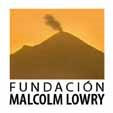The Influence of Mexican and Russian Civilizations
on
Malcolm Lowry’s Shamanic Perceptions
Nigel H. Foxcroft,
School of Humanities, College of Arts,
University of Brighton
Abridged Paper
An
inter-related set of research programmes, field visits, archive research and
textual analytical methodologies have resulted in a number of publications and
international conference presentations which, together, form my detailed study
of the shamanic and psychogeographic influences in the work of Malcolm Lowry.
I
have considered various psychological, anthropological, and ethnographic forces
- cultural, social, and linguistic – and their bearing on Malcolm Lowry’s
works, taking contextual references from Russian literature, history, and film.
In
this way I have been able to elucidate the multiculturally complex, cosmic
mind-set of Malcom Lowry, and provide a fuller picture of his literary world,
including an examination of East-West cross-cultural and historical factors.
In
terms of influences upon Malcolm Lowry’s work, my studies have explored the
impact of Sir James Frazer’s ethnographic research and of Hernán Cortés, the
Spanish conquistador, upon Aztec civilization, as reflected in the novel, Under the Volcano (1947), set in Mexico
on the Día de Muertos, or Day of the Dead. I have also considered the profound
impact of Russian nineteenth-century literary and twentieth-century filmic and
historical sources, as well as European avant-garde and surrealist influences,
on Lowry’s creative, imaginative, and spiritual consciousness - as is evident
from a close reading of his letters and their manifestation as Gogolian dead
souls of civilization in his oeuvres.
Pursuing
Lowry’s spiritual odyssey in his mystic quest for truth and salvation, I have analyzed
how Zapotec and Aztec anthropological, shamanic, and cabbalistic factors
interface with a psychological reading of Lowry’s works, notably Under the
Volcano, Dark as the Grave Wherein My Friend is Laid (1968), La
Mordida (1996), and ‘The Forest
Path to the Spring’ in Hear Us O Lord
from Heaven Thy Dwelling Place
(1961).
I
examine Lowry’s application of psychoanalysis and synergies with cultural
anthropology, the Cabbala, and various celestial outlooks, especially the
subconscious, subterranean dimensions of the Mexican Day of the Dead festival
in the context of Lowry’s engagement with it from 1936 onwards. Fieldwork in
Cuernavaca, Mexico City (the Museum of Anthropology, the Mesoamerican pyramids
at Teotihuacan, and the Frida Kahlo Museum), and the Valley of Oaxaca (with its renowned pre-Columbian archaeological,
religious, and politico-cosmological sites of the 10 000 year-old Mitla and the
500 BC Monte Albán) in Mexico
has enabled me to incorporate an analysis of Aztec and Zapotec world-views
through a detailed study of the origins of what is now a prominent Hispanic fete.
My
broader thesis is that Lowry appears to be seeking atonement with the spirits
of the dead, a need to repent for the debts of the past and for the sins of
mankind. Synergies are thus made with the cosmic, shamanic, and animist
concepts of the universe, expressed by the divine consciousness of the Aztec
and Zapotec civilizations. This is supported in a biographical context, notably
in relation to the little-known novel La Mordida – literally meaning The
Bite, or The Bribe – which traces the protagonist’s efforts to atone
for the daemons, or phantoms of the past which have been haunting him since his
traumatic, 1945-46 visit to Mexico where he allegedly encountered corrupt
immigration officials seeking bribes. Based upon this, I examine Lowry’s own
subconscious feelings of guilt regarding the 1929 suicide of Paul Fitte, his
fellow student and close friend, in the context of his recognition of the
necessity to atone for the debts of the past, repenting both for his own sins
and for those of mankind.
For
Lowry, the binary divide, the fissure in modern consciousness between the
rational, scientific thinking of the Enlightenment, on the one hand, and the
imaginative and intuitive, visionary facets of the arts (as expressed in the
legacy of European Romanticism), on the other, must be bridged for the
cultural, moral, and spiritual renewal of humanity. In pursuit of Lowry’s
search for universal harmony, cosmopolitan connections are established between
the rhythms of the universe reflected in the Aztec and Zapotec world-views, the
significance of the Pleiades star cluster, the intergalactic, paradisean symbol
of Eridanus, and the philosophical concepts of Taoism.
Psychotherapeutic
and shamanic healing is seen as a way of enabling regeneration via ethnographic
and aesthetic methods. Developing the inclinations of Ted R. Spivey, it may be
deduced that, for Malcolm Lowry, true salvation is attainable only in a fusion
of the two worlds (the natural with the divine, the terrestrial with the
celestial) and the two minds (the rational and scientific with the spiritual,
and the conscious, perceiving intellect with the subconscious imagination).
Updates on ‘Under
the Volcano’ Round Table,
International
Malcolm Lowry Colloquium 2014, Malcolm Lowry Foundation,
Museo La Casona
Spencer, Cuernavaca, Mexico,
30th October-2nd
November 2014
